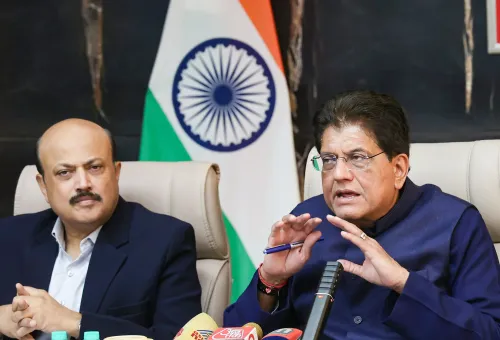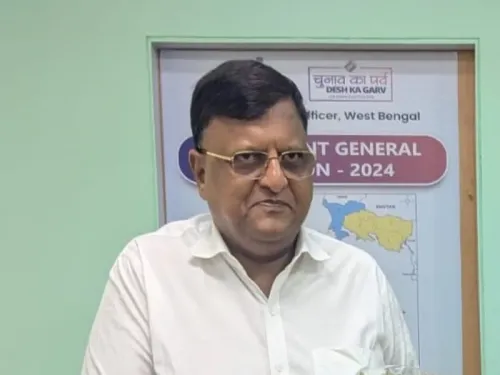Did J&K Police's Counter Intelligence Wing Conduct Raids in Terror Recruitment Case?

Synopsis
Key Takeaways
- Counter-intelligence operations are crucial for national security.
- Sleeper cells pose significant challenges for law enforcement.
- Raids conducted in multiple districts aim to disrupt terror recruitment.
- Understanding sleeper cells helps in preventing terror attacks.
- Community awareness is essential in combating terrorism.
Srinagar, July 19 (NationPress) The counter-intelligence unit of the Jammu and Kashmir Police executed raids at 10 different locations across various districts in Kashmir on Saturday, as part of their ongoing probe into a terror recruitment case.
According to officials, the Counter Intelligence Kashmir (CIK) is actively conducting searches in four areas of the Valley related to this investigation.
"These operations are connected to a terror crime investigation linked to a terrorist sleeper cell and recruitment module overseen by Jaish-e-Mohammed (JeM) commander, Abdullah Ghazi, from the other side of the border.
"The targeted locations include regions in Pulwama, Budgam, Ganderbal, and Kangan," the officials noted.
It's important to highlight that 'sleeper cells' refer to seemingly ordinary individuals who are, in fact, inactive terrorists.
These terror commanders provide sleeper cell members with weapons to carry out specific terrorist operations. After completing their task, the individuals dispose of the weapons and return to their normal lives.
Intelligence agencies indicate that identifying and apprehending a sleeper cell terrorist presents considerable difficulties, since these 'off-time' operatives can either be caught in the act of terrorism or identified through the capture of an arrested commander.
Members of sleeper cells typically do not maintain direct connections, meaning that the arrest of one individual does not automatically lead to the capture of others within the same or different sleeper cell networks.
Sleeper cells often execute the more challenging terror crimes, such as targeting local policemen in public areas, launching grenades in marketplaces, or disseminating terrorist propaganda.
Frequently, these youths act without the knowledge of their family, friends, and community, which explains the shock expressed by relatives and neighbors when any sleeper cell member is arrested by the police.










